Talking to children about safe touch might just save you and them from heartache for years to come. So many children are molested at sleepovers, at friends’ houses, and even by their own relatives. It can happen anywhere at anytime. It’s never too early to begin talking to children about safe touch!
By Will Odom, Contributing Writer (and Erin’s hubby!)
Last week, I wrote a post about why our family has decided to avoid sleepovers for right now.
The response was quite overwhelming.
The majority of comments were positive or at the very least understanding and respectful of our stance.
As I read through all the comments, there was one theme that appeared over and over again as people discussed their own family decisions about sleepovers, whether for or against or somewhere in the middle.
What was that theme? Education.
As I mentioned in the original post, a soldier is not sent out into the battlefield without proper training and equipment, so we want to make sure that our children prepared.
An adult or even peer pressure from other kids their own age can be powerful forces with which to contend, so we don’t want to put them in compromising situations. However, we also know that things can happen anywhere at anytime. We will not always be around.
While we have chosen to avoid sleepovers right now, there are many other areas that can be problematic, so we want them to know how to handle themselves in any situation.
We do not want our children to live in fear or mistrust all adults, but putting up boundaries is of utmost importance. They need to know that they have the power to say, “No!” and that we will always be there to listen.
Check it out here for yourself and discover all the great features and how it an help your family as one tool in your tool belt.
So, we asked our online community how they train their children to deal with the issue of safe and unsafe touch. We wanted to know how you all encourage discussions about these topics.
There were 4 main ways that our Humbled Homemaker community approaches talking to children about safe touch:
Conversations
From the beginning, we have spoken with our girls about how no one should touch the parts that are covered by their diapers or under their shirts.
We have used the real names for body parts and initiated these basic dialogs.
As they have gotten older, we have continued the conversations with more details and strategies.
Brenna Friend and her hubby are houseparents and had some excellent advice:
We started pretty young (2-3) and told them that only mom & dad (for baths and to help during potty times) & doctors (at doctor visits) were allowed to touch them in their private area. My kids knew no one was supposed to touch that area or look at it. We had a few babysitters, and we would let the kids know if they needed help that the sitter “has our permission to help you in the bathroom with your permission.”
We also use “red light touch, green light touch.”
Red Light = bad/inappropriate touches
Green Light = good/appropriate touches
We stopped using the phrases “good & bad” because it is confusing. We often say good or bad touch, but the problem is our bodies cannot distinguish between that when we are young.
It may be completely inappropriate but “feel” good. The child knows they are being hurt and mistreated, but because it felt good, they have mixed feelings in their brain. They often: a) feel like they wanted it b) feel like they deserved it c) have guilt for feeling good or d) won’t be able to say they were “violated/molested” because it felt good.
Mandi Street Benson mentioned the swimsuit rule and making sure others know you discuss these things with your child:
We talk about this in small doses and keep it casual. We have a swimsuit rule–anything on the body that is covered by a swimsuit should not be touched, looked at, or photographed by another person. Also, I tell my girls that no one else should expose their swimsuit area or ask them to touch it. And if they ever see pictures of someone’s swimsuit area, they should always tell either me or their dad.
My oldest knows she has the right to privacy in the potty, so even among family members this can be important.
Also, we discuss that there are no secrets in our family. It is ok if ONE parent does not know something (as in a surprise), but it is not ok if BOTH parents do not know something. We have also told them that if someone ever says to keep a secret from us, that they don’t *need* to tell us, or that they will get in trouble for telling us, then they need to tell us right away. That should be a red flag for them.
Another thing I tell them is that if you have that icky feeling like something is wrong then your instinct is telling you to tell your Mommy and Daddy right away— no matter how small it seems.
The idea is to educate them so they do not stay silent about the situation. There are times when they will have to be in another’s care, and they should be aware of what to do if anything inappropriate happens. I think that is why it is so important to talk about these things and let others *know* you talk about them with your children. I think the -most- important factor is that others are aware that I do this. A casual mention to your child in front of others lets them know, I am NOT afraid to talk about it, and neither is my child. If people know I will talk about body safety right in front of them, I reason they are less likely to mess with my kid.
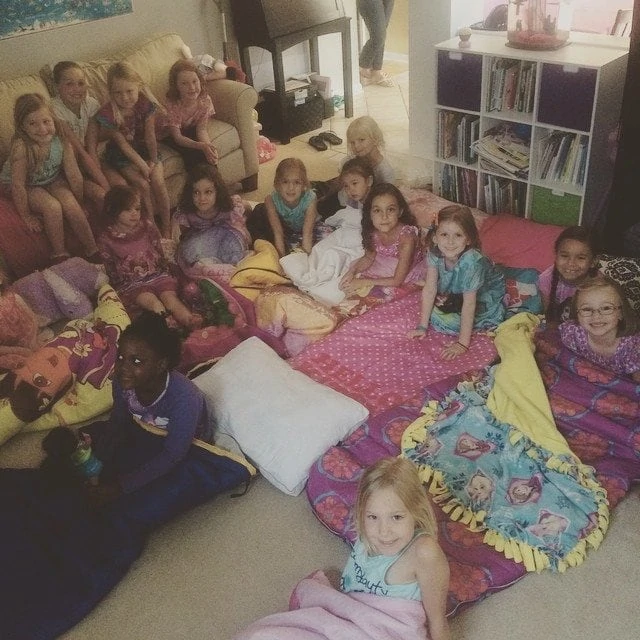
Lynn Killpack talks to her children about their “treasures” that should be protected:
From birth, I have called my children’s body parts “their treasures.” (I also taught them the real medical words). The idea of treasures helped them understand they are to be protected & hidden. “Covering your treasures” has helped me to teach modesty, given me language to talk about predators, launched talks about sex as they have gotten older & gave them a sense of ownership/empowerment of their bodies. We straight up talk about people who may want to steal treasures from them & how important it is they tell if this happens. Kids cannot stop robbers by themselves. Good touch, bad touch leads to confusion. The body will lie about what is appropriate. Predators count on that.
Vivian Gallegos talked to her son about appropriate behavior between adults and children:
I was careful not to want him to mistrust all adults but to be aware of certain things. I told him he had to trust his instincts at that age most kids get a feeling of when someone wants to be friends. That’s fine, but when an adult is initiating a friendship that feels exclusive, like paying more attention to you than others wanting to show or share things to impress you, wanting to have time only with you wither for a cool reason or not. That’s when you need to set boundaries and if you ever even wonder or question if that is what’s happening or not ALWAYS ask me or talk to me or dad about it.
Local Safety Camp
Last year, our friend and fellow blogger Whitney Cornelison from Beauty in the Mess wrote an excellent post on 5 Safety Skills to Teach Your Child Today.
Her children had just recently completed a radKIDS safety education program that was offered in our area.
Our oldest two girls just attended the camp last week, and I cannot say enough good things about the program. They could not wait to get home to tell me and show me all they had learned…from gun safety to personal boundaries to fighting off an attacker.
In addition to what they learned, it gave us some great talking points for discussion throughout the week.
And one the best parts is that they can attend again as many times as they want to until they are age 13.
I would strongly encourage parents to find a local safety camp, whether it be radKIDS or another similar program.
Books
Books are a great way to start conversations and teach kids about their bodies as well as handling inappropriate situations.
Here are a few that were suggested by our readers:
- Sex Ed Series (Paperback on Amazon The Talk and Changes)
- It’s My Body
- I Am Safe
- I Said No
- The Right Touch
- No Trespassing-This is My Body!
- Sara Learns to Yell & Tell
- Samuel Learns to Yell & Tell
- God Made Me: Safe Touch Coloring Book
- The Swimsuit Lesson
- Good Pictures, Bad Pictures (talking to your kids about porn)
No Secrets
A couple of readers shared a link to an article about not keeping secrets: Why We Don’t Keep Secrets in Our House.
There are also a few books that follow this idea:
This rule is an excellent place to start the discussion and a good first line of defense.
No one, especially an adult, should ever ask a child to keep a secret that is not something like a surprise party. Always encourage your children to tell you if someone tells them to keep a secret.
Our children should always know that they can come to us with anything and that we will always be willing to listen.
Check out the free mini-ecourse training on Talking to Kids about Sexuality from Intoxicated on Life.
Have you begun talking to your children about safe touch? What are your suggestions for talking to your children about safe touch?
Click the images below to read these others posts which sparked the conversations that inspired this post:

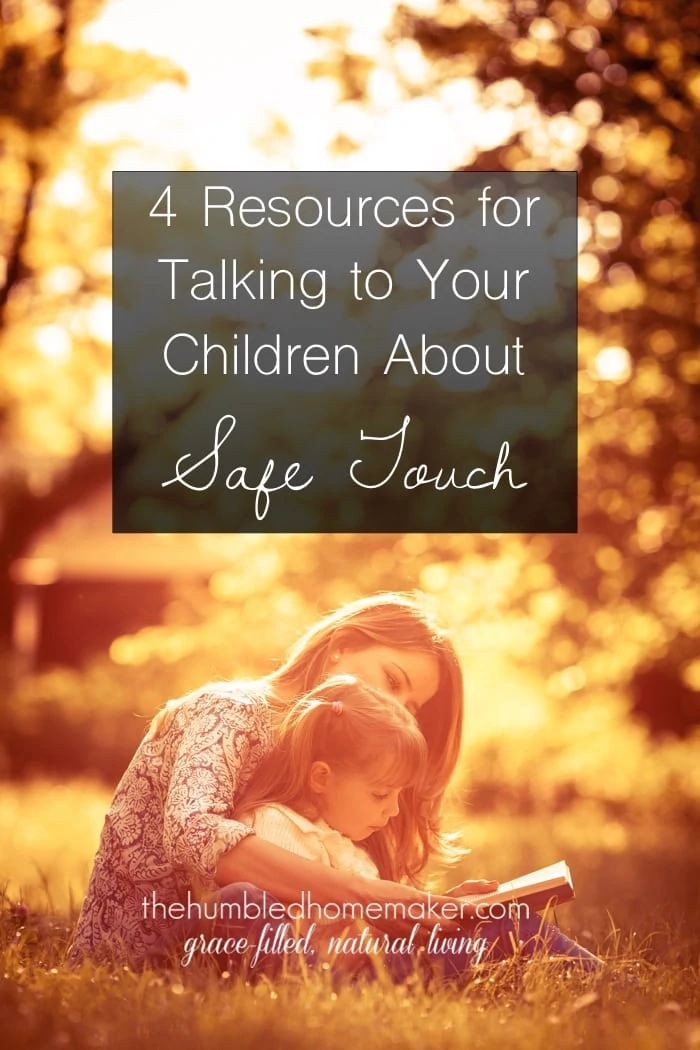
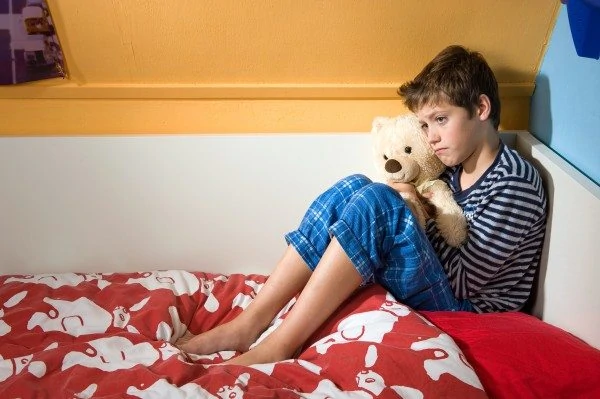


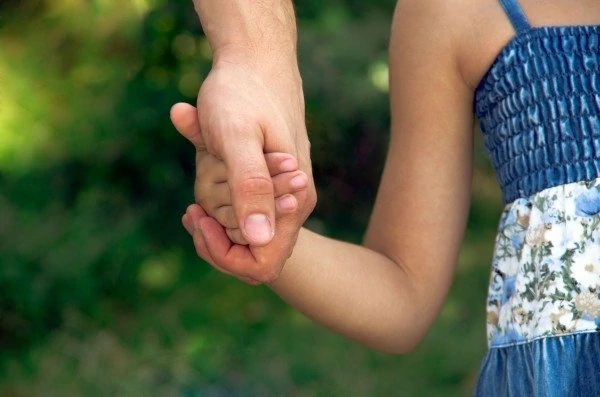
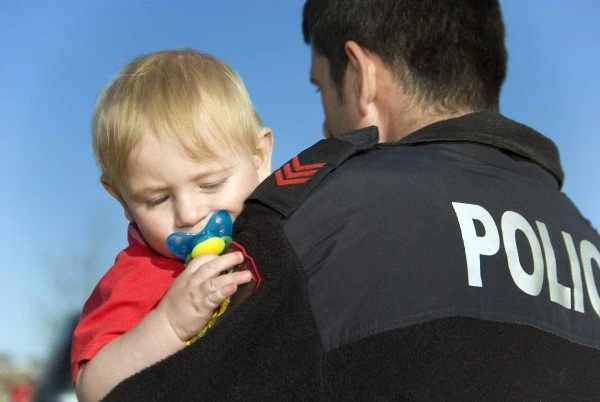
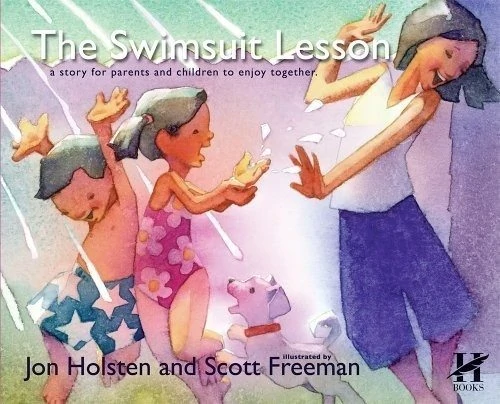
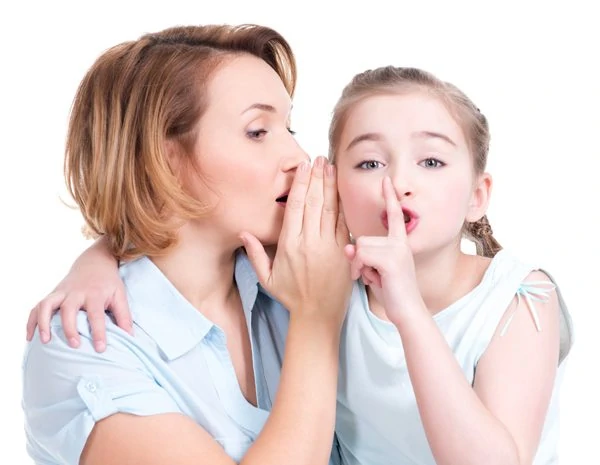
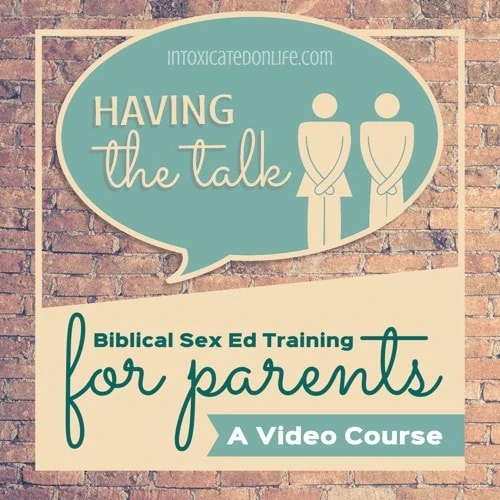
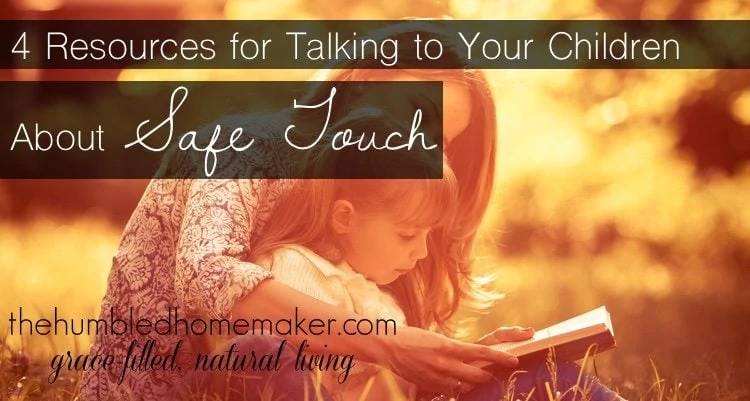
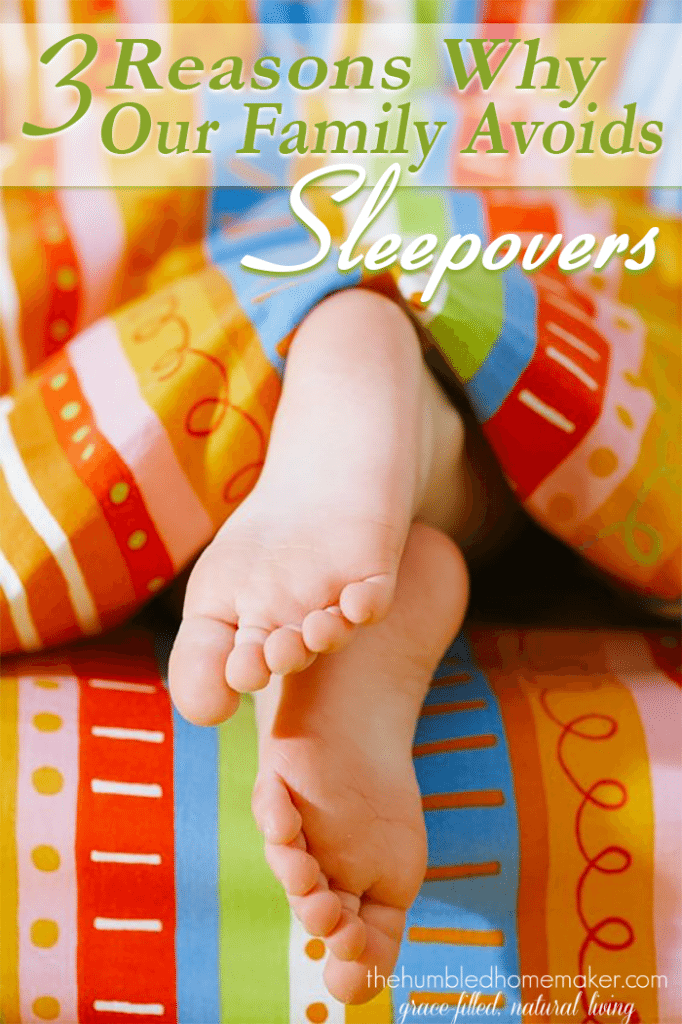
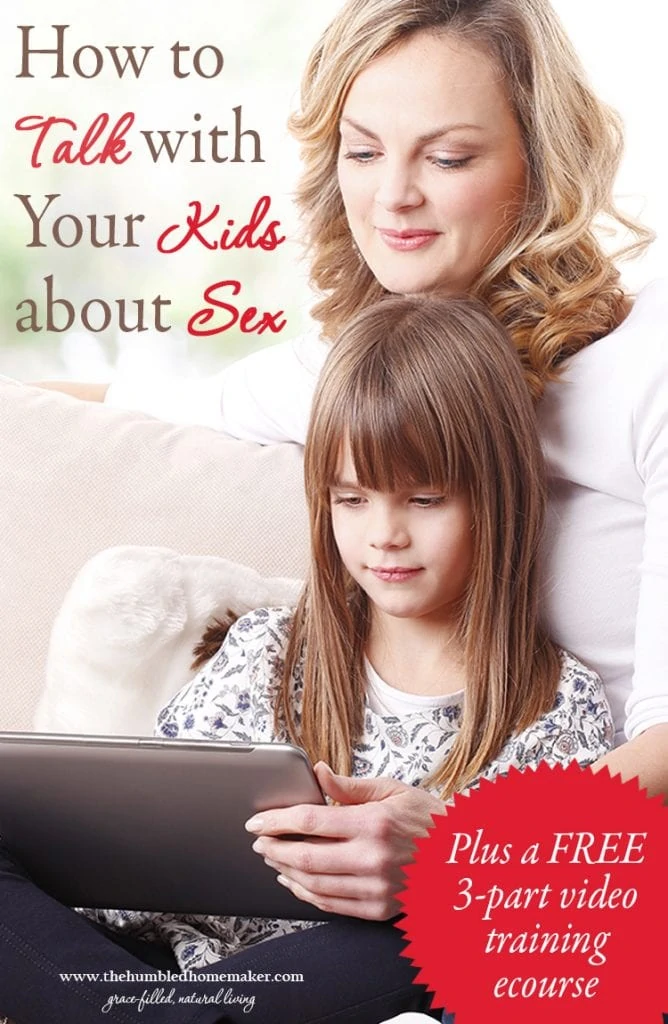
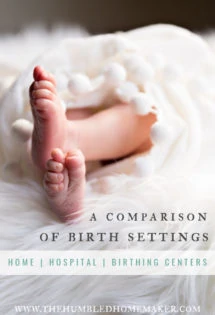



Cookie
Thank you so much for this! We share very similar approaches, but I never thought about looking into children’s stories that may address these issues or a safety camp! We also have a NO SECRETS rule and so I just want to mention we have to watch how we talk about birthdays or gifts in general. It’s not a secret, it’s a “surprise”. Two distinctions are: 1) the parent eventually finds out soon 2) At least one parent is always in the loop. In a lot of our conversations we role play, whether we are working on manners, handling potential bullies or setting boundaries. It was in those conversations that we discovered the “sometimes secrets are ok” loop hole a predator might use. All of your ideas are fantastic, and honestly, simply getting this topic out in the open and cultivating a discussion is so beneficial in and of itself. Thank you for going on a limb to share your thoughts and resources with us to help protect our babies!
Erin
I love the role play idea as well as the distinction between a secret and a surprise. Role playing is such a great way to practice the skills and find those holes like you mentioned.
Melissa Meuzelaar
Thank you for this post! As the author of the Why We Don’t Keep Secrets in Our House post, that you mentioned at the end of this piece, I highly recommend checking out the book, Off Limits by Feather Berkower and Sandy K. Wurtele, as well as the website, www.parentingsafechildren.com. They are both incredibly helpful resources for not only educating your children, but also for having conversations with other adults/caregivers regarding abuse prevention.
Erin
Thank you Melissa. It was an excellent article. And thank you for the book recommendations.
Francis
Thank you for this article. My oldest is 5 1/2 and I have been at a loss as to how to approach the subject of safe touching. This subject has been weighing heavily on my mind recently now that he is getting older. Thanks again!!
Erin
I hope you found it useful Francis and were able to glean some new information.
katy
Thank you so much for this. As a victim of molestation i can see how i was vulnerable because these things were never discussed. And honestly i have been afraid ygat i wouldnt be able to tell if someone was a predator. But now i have some real tools i can use to keep my kids safe. Thank you so very much.
Erin
They were never discussed with my husband either. It is so important.
anonymous
My daughter is 3 years old and we’ve already had to deal with this issue. She was nearly molested twice in one evening by an older child. Both times, myself or my husband caught the boy before was able to do anything. My daughter was very angry at him, but in the moment, she didn’t know what to do. Needless to say, we’re avoiding that boy now.
We talk “power” language with our daughter. Mostly in regards to potty training: “You are a powerful little girl. You an control your body. You can tell the poop to go in the diaper or in the toilet.” (we had a long regression after the incidents). But, then I used the same language to tell her that she was in control of her body. We also gave her the rule that she couldn’t take her clothes off without asking mommy or daddy first. She’s had a chance to test that (at a friends house, playing dress up) and did great.
She’s 3 years old!
Erin
I’m glad you were able to stop that, and I hope she is doing OK. The language we use with our children is key in helping them deal with these situations.
veronica
I drilled this into my children and told them if anyone ever tries to touch them, make my kids touch them or makes them feel uncomfortable to say NO! and come tell me right away. I told them this over and over. I told them what areas of their body are private. Unfortunately my daughter was molested by her dad and she didn’t tell me for almost a year! I knew something was going on when she came back from visits with her dad but every time I asked her she would say no nothing happened. Finally I said you need to tell me why it hurts down there and she broke down and told me everything that happened. I think educating kids is important but even them knowing its wrong there is the shame, fear and embarrassment that will keep a child from disclosing what is happening to them.
Lal
My son was molested by my father, he was two, but was able to tell me it happened. After this came about we found out my brother had been molested by my dad 30 years before, for many years and had had repressed the memories so had nto said anything. It is hard when it is someone you trust with your kiddos.
Erin
Wow! I am so sorry to hear about your son and your brother as well. I am so glad your son was able to tell you!
Ala
for many parents (especially those with older kids) KidTracker app might be useful, it make possible to localize child aln has a “HELP” button, so whenever kid is in danger, he/she can hold this button for a few seconds, to send HELP message to the parent immediately.
Meghan
Love this information as well as the 3 reasons. My daughter who is 7 recently started talking about sleep overs. Her only experience is a friend stayed here one night because I was babysitting. I slept in the same room with them that night. The others have been at friends when we were visiting. Again I was present the entire time. My daughter slept with me.
When this new curiosity started my 1st thought was, what are you so afraid of? The 2nd was that she would be left vulnerable to something like this. No matter how much you think you know someone you don’t. As my daughters protector it’s my job to keep her from danger when it’s with in my control.
I was still on the fence with this choice until I found this blog. You’ve sealed my decision. I too do not want my daughter to live in a bubble. However, there are certain ways we can provide exposure and just throwing them to the wind isn’t how I choose to do it.
I have yet to discuss this with my husband. I’m pretty positive he’ll be on board with it though as we both tend to look at parenting from the same view.
Michelle@Simplicity Speaking
Thank you, Will and Erin, for talking about the hard stuff. My husband and I have similar stories and that’s why we’ve decided our children aren’t too sleep over at anyone’s house either. You can’t unsee things. And people will laugh and say you’re being overprotective or your kids are missing out. But if my kids are missing out on being exposed to porn at 6 years old then I’ll take all the rude remarks in the world! We are called to protect our children. Let’s do it! Nobody else is going to.